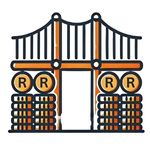
For many South Africans relying on the South African Social Security Agency (SASSA) older person’s grant, unexpected expenses can place additional pressure on already limited budgets. Loans for SASSA pensioners have become an important option, providing access to funds for medical bills, household repairs, or day-to-day living costs. While SASSA itself does not issue loans, beneficiaries may qualify for credit through National Credit Regulator (NCR) registered lenders that recognise the stability of the monthly grant income. In 2025, a range of products is available, from personal and secured loans to specialised options such as pension bridging loans, each with different conditions suited to individual needs.
Key Takeaways
- SASSA pensioners can apply for loans, but not directly from SASSA: Approved lenders provide options such as personal, secured, unsecured, payday, and bridging loans, with eligibility based on income, age, and affordability checks.
- Multiple loan types are available to suit different needs: Pensioners may use property, movable assets, or pending pension payouts as security, while unsecured loans offer quicker access to smaller amounts.
- Caution and comparison are essential: Only NCR-registered lenders should be used, as scams remain common. Pensioners should compare interest rates, fees, and repayment terms before committing to avoid falling into debt.
Can a SASSA Pensioner Get a Loan?
If you receive a SASSA grant and are considering applying for a loan, you’re not alone. Many pensioners or those with disability grants wonder about their options.
The short answer is yes, you can apply for a loan while receiving a SASSA grant, but not directly through SASSA itself. The South African Social Security Agency does not lend money, yet its SASSA loans platform provides guidance and suitability checks.
Retirement should be a time of comfort and financial security. If you find yourself needing additional funds to manage expenses, explore flexible loan options for pensioners. Our guide helps you understand which loans are available for pensioners and how to safely apply for them.
About Arcadia Finance
Access your loan easily with Arcadia Finance. There are no application fees and you have the option to choose from 19 reliable lenders, all conforming to the regulations set by South Africa’s National Credit Regulator.
Types of Loans Available
Loans for SASSA pensioners are designed to provide financial relief to older South Africans who receive a monthly pension through the South African Social Security Agency. These loans are generally more accessible than standard bank loans, as lenders often take into account the stability of the monthly grant income. Pensioners may use these loans to manage medical expenses, urgent home repairs, day-to-day living costs, or other essential needs.
There are several types of loans available to SASSA pensioners, each with different conditions and suitability depending on the borrower’s circumstances:

Personal Loans
Personal loans are unsecured and can be used for a wide range of expenses, such as healthcare, education, or consolidating debts. Approval is usually based on affordability assessments, and repayment terms can vary from a few months to several years.

Secured Loans
Secured loans require an asset, such as a house or vehicle, to be used as collateral. Because the lender’s risk is lower, interest rates are often more affordable than those of unsecured loans. These loans may be an option for pensioners who own property but should be approached with caution as failure to repay could put assets at risk.

Unsecured Loans
Unsecured loans do not require any collateral, making them suitable for pensioners without assets to pledge. However, they generally come with higher interest rates. They are often used when urgent access to funds is required.

Payday Loans
Payday loans are small, short-term loans that must be repaid when the next income payment is received. They may help cover immediate costs, but they carry high fees and interest charges. For pensioners on fixed incomes, these loans can become expensive if not repaid quickly.

Pension Bridging Loan
A pension bridging loan provides pensioners with an advance on their confirmed lump-sum payout that has not yet been released. Unlike traditional personal loans where approval is heavily influenced by a credit score, this option is secured against the pending pension benefit, making it more accessible. Specialist lenders advance a portion of the payout, allowing pensioners to manage essential costs while waiting. This arrangement enables them to cover daily living expenses or urgent financial needs without relying on family members for help or resorting to expensive forms of credit such as high-interest credit cards.

Loans Against Property
For South African pensioners, a home is often their most valuable asset, and once the bond is fully or mostly settled, the equity can be used to access funds without selling the property. In this case, the lender assesses the property’s market value and provides a loan based on a percentage of that value, usually around 50 percent, with a bond registered over the property until repayment is completed. This option is best suited to pensioners who require a larger amount of money for significant purposes such as essential renovations, medical costs, or assisting family members with a financial contribution, while still retaining ownership of their home.

Loans Against Movable Assets
Many pensioners own high-value possessions that can be used to access funds quickly, such as jewellery, fine art, luxury watches, collectibles, or vehicles. Specialist asset-based lenders provide secured loans against these items, with the borrower presenting the asset for valuation before receiving an offer. Once accepted, the item is stored securely and insured until the loan is repaid, while the borrower receives cash, often on the same day. This type of loan is particularly suitable for pensioners who need money urgently and prefer not to undergo credit checks or income assessments, making it a practical solution for those with valuable personal assets.

Important Considerations
SASSA pensioners should carefully review their financial circumstances before applying for any loan. Comparing offers from different NCR-registered lenders can help ensure the choice is affordable and suited to long-term needs. Pensioners are encouraged to prioritise lenders who comply with the National Credit Act, as this provides protection against unfair lending practices.
For SASSA pensioners managing chronic conditions, accessibility to late-night medication can be life-saving. Here’s a look at 24-hour pharmacies in Cape Town, ideal for those on fixed incomes needing around-the-clock pharmaceutical support.

Eligibility Criteria for Loans for SASSA Pensioners
To apply for a loan as a SASSA pensioner, lenders typically require applicants to satisfy certain eligibility conditions. Pensioners must usually be over 60 and provide proof of a stable income as this could come from the SASSA older-persons grant or another legitimate source. To confirm their repayment capacity, applicants may need to submit documentation such as pension slips, recent bank statements, or payslips. Honest and clear disclosure of income and regular expenses helps prevent over-commitment and protects one’s credit record.
SASSA beneficiaries should note that the agency continues to review eligibility. As of 1 April 2025, the annual income threshold is R107 880 for a single applicant and R215 760 for married couples, while the asset thresholds are R1 524 600 and R3 049 200 respectively. If, during the loan application process, lenders or SASSA uncover undeclared income or changes in circumstances, repayments may be delayed, or grant eligibility reassessed.
Advantages and Disadvantages of Loans for Sassa Pensioners
Advantages
- Access to funds when needed: Loans provide pensioners with a way to manage unexpected costs such as medical treatment, urgent home repairs, or family support, without relying solely on their monthly SASSA grant.
- Convenient applications: Many lenders now offer online platforms and mobile applications, allowing pensioners to apply without visiting a physical office. Approvals are often processed quickly, meaning funds can be available within a short time.
- Flexible repayment structures: Loans for SASSA pensioners are often designed with repayment plans that can be adjusted to suit income levels. This flexibility helps pensioners manage repayments more comfortably and avoid arrears.
- Competitive interest rates on some products: Certain secured or regulated personal loans may offer lower interest rates compared to short-term or unregulated borrowing, making them more manageable for pensioners living on a fixed income.
Disadvantages
- Risk of falling into debt: If repayments are missed or if several loans are taken at once, the costs can rise rapidly due to fees and interest. This may trap pensioners in a cycle of debt that is difficult to recover from.
- Eligibility barriers: Some pensioners may struggle to qualify if they do not meet specific lender requirements, such as proof of income, minimum age, or a satisfactory credit history.
- Higher costs for unsecured borrowing: Loans without collateral are generally more expensive, as lenders take on more risk. This can make unsecured loans less affordable over the long term.
- Possibility of loan refusal: Even when applicants meet the basic requirements, lenders may decline applications after affordability checks. This can leave pensioners without the financial support they expected.
More: If you’re applying for a SASSA grant, it’s important to understand the key differences between the SASSA R350 and R370 grants. Knowing these distinctions can help you make informed decisions and ensure you meet the specific eligibility requirements for each grant.
How to Apply for a Loan as a Sassa Pensioner
Preparing the Required Documents
Before applying for a loan as a SASSA pensioner, it is necessary to have the correct documents ready. The documents required may differ depending on the lender and the type of loan, but most lenders will ask for the following:
- Proof of identity: A valid South African ID or passport.
- Proof of income: A recent bank statement or pension statement showing the monthly SASSA pension payment.
- Proof of address: A utility bill, rates account, or bank statement reflecting the current residential address.
- Proof of age: This can usually be covered by a South African ID, but some lenders may request a birth certificate.
- Bank details: Bank account number and branch code, as most lenders require an active bank account to transfer funds.
Having these documents ready before applying makes the process quicker and improves the likelihood of loan approval. Some lenders may request additional paperwork depending on their requirements, so pensioners should be prepared to provide further information if necessary.
How to Apply for a Loan with Arcadia Finance
Arcadia Finance makes comparing loan options simple and convenient. Start by visiting our website and filling in a quick form with basic details such as your income, expenses, desired loan amount, and preferred repayment term. We will match you with offers from reputable lenders so you can compare rates, terms, and features in one place. Once you have reviewed the options, you can proceed directly with your chosen lender to complete the application.
Comparison of Loan Options
Before applying for a loan as a SASSA pensioner, it is essential to compare different loan options to find the one that best fits the pensioner’s needs and financial situation. Pensioners should consider factors such as interest rates, repayment terms, fees, and eligibility criteria when comparing loan options.
Pensioners can compare loan options by:
- Researching online: Pensioners can search for loans for SASSA pensioners online and compare the different options available.
- Consulting a financial advisor: A financial advisor can provide personalized advice and help pensioners compare loan options.
- Comparing quotes: Pensioners can request quotes from different lenders and compare the interest rates, repayment terms, and fees to find the best option.
Taking the time to compare loan options can help pensioners make an informed decision and choose a loan that fits their needs and budget. Pensioners should also be aware of any hidden fees or charges and ask the lender for clarification if needed.
Simplify your search with our comprehensive guide to the Top Loan Providers in South Africa. If you’re looking for low interest rates or flexible repayment terms, our list has you covered.
Application Process
Once the pensioner has compared loan options and gathered all the required documents, they can proceed with the loan application process. The application process may vary depending on the lender and type of loan, but it typically involves the following steps:
- Complete the loan application: This can be done online, by phone, or in person at the lender’s office. The pensioner will need to provide personal and financial information, including their monthly income, expenses, and employment details.
- Submit required documents: The pensioner will need to submit the necessary documents, such as proof of identity, proof of income, and proof of address, as part of the loan application.
- Wait for loan approval: The lender will review the loan application and make a decision on loan approval. This process may take several days or longer, depending on the lender.
- Receive loan funds: If the loan application is approved, the pensioner will receive the loan funds, either by direct deposit into their bank account or by check.
The loan application process can be straightforward, but it is important for pensioners to carefully read and understand the loan terms and conditions before signing the loan agreement. Pensioners should also be aware of any fees or charges associated with the loan and ask the lender for clarification if needed.
If you’re a SASSA pensioner looking for financial assistance, you might be wondering whether you can apply for a loan while on a government grant. Find out the eligibility criteria, risks, and benefits in our detailed guide on Can I Apply for a Loan While Receiving a SASSA Grant?.

Follow-Up and Approval Process
After applying, it is wise for pensioners to follow up with the lender to confirm the progress of the application. Many lenders provide online tracking tools, or applicants can phone the lender directly.
If approved, the pensioner will receive both the loan funds and a formal loan agreement. This document outlines the repayment schedule, interest rate, and any associated fees. It should be reviewed thoroughly before signing.
Once the agreement is in place and funds are received, the pensioner can use the loan for its intended purpose. It is vital to maintain timely repayments, as missing instalments may negatively affect credit history and lead to additional costs.
Conclusion
Loans for SASSA pensioners in 2025 remain a practical option for those who need financial support beyond their monthly grant. While choices range from personal loans to secured borrowing against property or assets, the key lies in selecting NCR-registered lenders and ensuring repayment terms are affordable. With careful planning, pensioners can access funds for emergencies, medical needs, or household expenses without putting their long-term financial stability at risk.
Frequently Asked Questions
No, SASSA does not provide loans directly. However, pensioners can apply through approved lenders that assess affordability and compliance with the National Credit Act.
Applicants typically need a valid South African ID, proof of income such as a pension slip or bank statement, proof of address, and bank account details. Some lenders may also request additional documents depending on the loan type.
Yes, unsecured loans often come with higher interest rates because no collateral is provided. They can still be useful for urgent expenses, but they are generally more costly compared to secured loans.
Pensioners should only use lenders registered with the National Credit Regulator. They must avoid offers that request their SASSA card as collateral, as this is illegal. Verifying the lender’s registration and checking loan agreements thoroughly helps reduce the risk of fraud.




